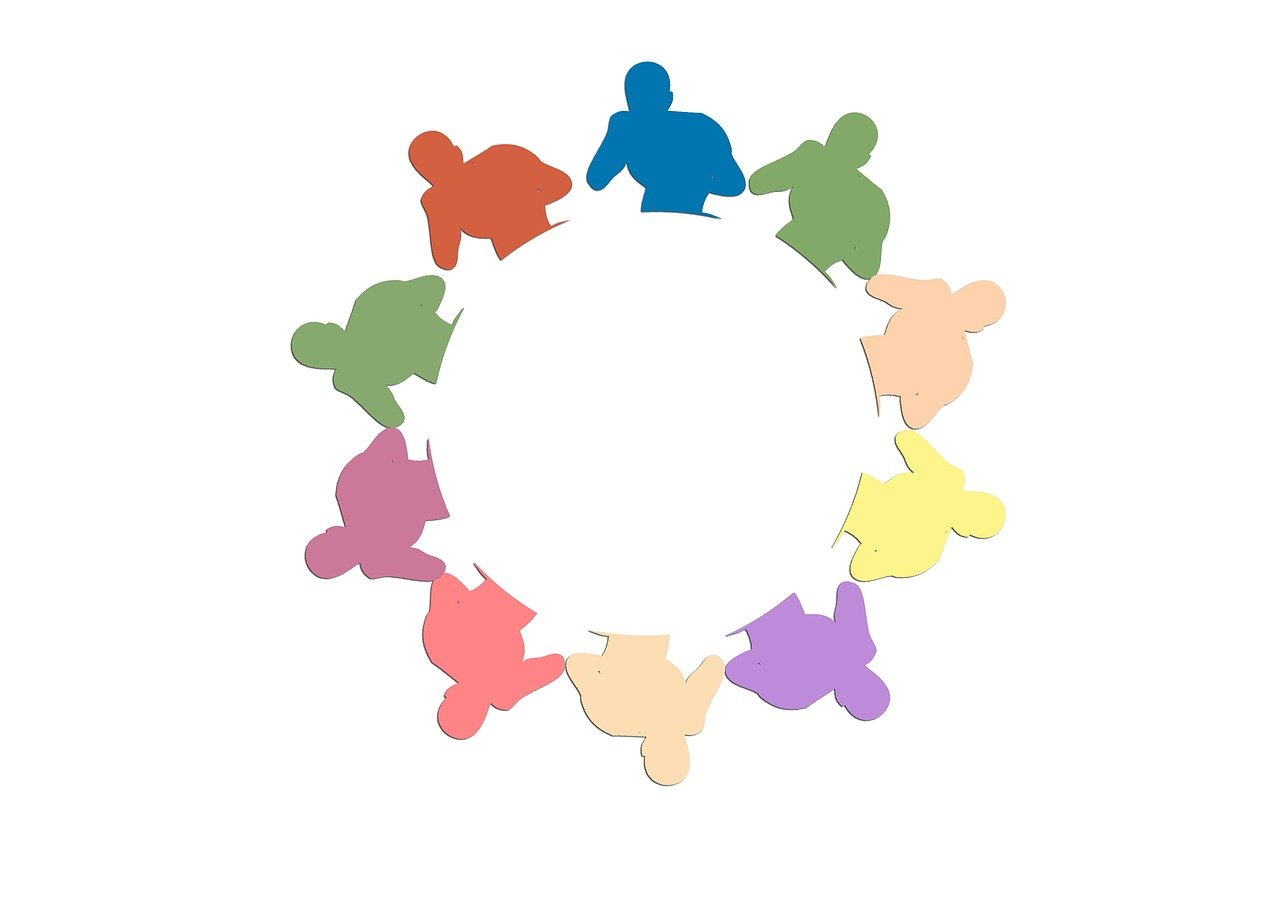|
IN BRIEF
|
Accountability plays a pivotal role in achieving success within the home environment. It involves being answerable for one’s actions and decisions, fostering a culture where family members can support each other in reaching their individual goals. By establishing clear expectations and setting up accountability partners, families can create an atmosphere that encourages responsibility and growth. This proactive approach not only helps in tracking progress but also strengthens relationships and instills a sense of trust. Ultimately, embracing accountability can lead to better communication, enhanced emotional intelligence, and successful outcomes in personal development.
Understanding accountability is essential for anyone striving to cultivate a successful environment at home. This essential concept not only pertains to personal responsibility but also emphasizes the importance of making commitments, tracking progress, and engaging with others in a supportive manner. Fostering an atmosphere of accountability within the family can lead to improved relationships and enhanced goal achievement. In the following sections, we will delve into the vital role accountability plays in personal growth, family dynamics, and ultimately achieving multifaceted success in our home lives.
The Role of Accountability in Personal Growth
At the heart of personal development lies the fundamental principle of accountability. Accepting responsibility for one’s actions is necessary for growth and transformation. When individuals hold themselves accountable, they are more likely to recognize their strengths and weaknesses, effectively setting the stage for meaningful change. Furthermore, personal accountability fosters self-reflection, allowing people to learn from their experiences and adapt their strategies for success.
Accepting Responsibility for One’s Actions
Embracing responsibility begins with self-awareness. Recognizing how our choices shape our lives is critical. This acknowledgment creates a solid foundation for accountability. Instead of assigning blame elsewhere, accepting ownership empowers individuals to take charge of their lives and destinies, ultimately leading to profound personal growth.
Engaging Family Members in Accountability
Encouraging accountability within a family can be transformative. When all members commit to being accountable both to themselves and to each other, the family unit becomes more cohesive. This collective responsibility can result in stronger bonds and a shared sense of purpose.
Establishing Agreements and Accountability Partners
A key feature of accountability is establishing agreements with others. This can manifest in the form of accountability partners—family members who support each other in reaching their goals. By discussing aspirations and setting clear expectations, individuals create a bond that encourages persistence. It becomes a shared mission that fosters growth and success within the family.
Setting Clear Goals for Accountability
To effectively embrace accountability, setting clear, well-defined goals is crucial. Knowing what you want to achieve creates a roadmap for personal success. When goals are articulated explicitly, it becomes easier to track progress and make necessary adjustments along the way.
Developing Goal-Oriented Mindsets
Each family member should participate in the process of setting goals, fostering a collective vision for the home. By engaging everyone in defining expectations, household members become more invested in both their individual objectives and the overall success of the family unit. Goal accountability promotes a healthy environment for growth, motivation, and encouragement.
Monitoring Progress for Continuous Improvement
Once goals are established, it is imperative to maintain a progress monitoring system. Keeping track of achievements and setbacks allows family members to celebrate successes while recognizing the areas in need of improvement. A consistent review of objectives strengthens accountability.
Daily and Weekly Check-ins
Regular check-ins can serve as a means of reinforcing commitment and motivation within the family. Scheduling daily or weekly meetings provides an opportunity for everyone to discuss their progress, identify challenges, and share insights. This collaborative approach enhances accountability and nurtures a supportive atmosphere.
Creating a Culture of Accountability at Home
Building a culture of accountability goes beyond individual responsibility; it encompasses the ethos of the household. When families cultivate an environment that prioritizes accountability, they promote a sense of trust and open communication. Embracing this culture can reinforce lasting commitments to personal and collective goals.
Encouraging Open Communication
Transparency is vital for enforcing accountability. Open dialogue creates space for family members to share their thoughts, feelings, and concerns without fear of judgment. This candid approach fosters a family dynamic where accountability thrives, leading to stronger relationships and joint success.
The Impact of Accountability on Family Dynamics
The ripple effect of accountability extends beyond individual progress; it alters family dynamics in profound ways. When families embrace this principle, they experience improved relationships, increased trust, and enhanced cooperation.
Strengthening Trust Among Family Members
Trust serves as the foundation for strong family bonds. When family members consistently uphold their commitments and support one another’s aspirations, trust naturally flourishes. This sense of reliability enhances the family unit’s stability and makes it easier to navigate challenges together.
Accountability in Parenting
For parents, modeling accountability is crucial for instilling this value in their children. Teaching children the importance of being answerable for their actions shapes them into responsible and conscientious individuals.
Setting Boundaries and Expectations
Establishing clear boundaries and expectations helps children understand the role of accountability in their lives. When parents set specific guidelines and follow through on consequences, children learn the significance of their actions and how those choices affect their surroundings.
The Connection Between Accountability and Emotional Intelligence
Emotional intelligence significantly impacts one’s capacity for accountability. Those with higher emotional intelligence tend to recognize their feelings and the implications of their actions more clearly, facilitating healthier decision-making processes.
Cultivating Emotional Awareness
Improving emotional intelligence among family members enhances communication and accountability. When individuals understand how their emotions influence their choices, they become better equipped to handle adversities and learn from their experiences.
Mindfulness and Accountability
Integrating mindfulness into your home life can elevate accountability levels. When family members practice mindfulness, they become more aware of their thoughts, emotions, and actions, resulting in increased responsibility for their behaviors.
Practicing Mindful Decision-Making
Encouraging mindfulness among family members can lead to more deliberate choices. When individuals take the time to reflect on their decisions, they are less likely to act impulsively, paving the way for greater accountability.
The Role of Values in Fostering Accountability
Identifying and prioritizing family values plays a significant role in promoting accountability. Establishing shared values creates a sense of unity and guides family members in their actions and decisions.
Aligning Actions with Core Values
When accountability is rooted in shared values, family members are more likely to hold each other accountable in a supportive manner. By engaging regularly in discussions about these values, families reinforce their commitment to one another while fostering a sense of responsibility.
Success Habits for Household Accountability
Cultivating specific success habits can significantly enhance accountability within the home. These habits serve as effective strategies for family members to support one another in their journeys toward achieving both individual and collective goals.
Daily Rituals and Routines
Implementing daily rituals, such as morning check-ins or gratitude practices, can solidify accountability within families. Such routines reinforce the idea that everyone is on a shared journey, fostering motivation and collaborative spirit.
Strategic Planning for Accountability
Integrating strategic planning into your household can improve not only individual success but also the family dynamic as a whole. When families brainstorm together to set goals and create action plans, they enhance the sense of accountability.
Collaborative Action Plans
Building action plans as a family promotes collaboration and mutual investment in each other’s goals. The process encourages open communication and fosters accountability while allowing family members to support one another in their endeavors.
Overcoming Challenges in Accountability
While accountability is undoubtedly beneficial, it can come with challenges. When family dynamics become strained, or when individuals struggle with personal commitments, obstacles arise. However, addressing these challenges can lead to innovative solutions and stronger family ties.
Addressing Resistance and Obstacles
When faced with resistance, family members should emphasize communication to clarify expectations and re-establish commitment. Addressing the underlying issues openly can help create a more supportive environment where everyone feels empowered to pursue their goals.
Creating a Legacy of Accountability
Ultimately, fostering accountability within the family sets a precedent for future generations. It instills values and principles that children can carry with them into adulthood, creating a lasting legacy of responsibility, trust, and success.
Teaching Future Generations About Accountability
By actively engaging children in discussions about accountability and modeling responsible behavior, parents create a foundation for long-term success. Teaching children the value of accountability empowers them to pursue their dreams confidently and navigate life’s challenges effectively.
In the end, accountability is more than just a buzzword; it is a fundamental principle that shapes personal development, family dynamics, and overall success at home. By embracing this concept, families can create a nurturing environment where everyone feels encouraged, supported, and motivated to pursue their goals. The journey of accountability transforms lives—one household at a time.

Testimonials on Accountability: The Key to Achieving Success at Home
“Implementing accountability in our family dynamics was a game changer. We began to set clear goals for each member of the family, and this not only encouraged personal responsibility but also fostered an environment of support and motivation. We now celebrate our achievements together, and it has strengthened our bond immensely.”
“At first, I thought accountability was just about checking off tasks, but it evolved into something deeper. Having an accountability partner in my spouse has transformed our approach to achieving household goals. We hold each other accountable, share progress, and provide encouragement, which has made reaching our objectives feel achievable and satisfying.”
“Introducing accountability into my parenting style was daunting at first. However, once I took the plunge, I realized that it taught my children the importance of responsibility. They now set their own goals for homework and chores, and they take pride in the progress they share with us.”
“As someone who juggles multiple responsibilities at home, I found that setting clear expectations and holding myself accountable not only cleared the chaos but also manifested a sense of control. By being honest about my successes and failures, I’ve gradually become more effective and purposeful in managing my time.”
“Accountability has become the cornerstone of my personal growth at home. It has pushed me to reflect on my values and ensure that my actions align with my family’s goals. Establishing regular family meetings to discuss our accountability has brought our desires and aspirations into clear focus.”
“I always viewed accountability as a burden, but once I began tracking my commitments and sharing them with my partner, it became liberating. It felt good to know I wasn’t alone in striving for our shared goals, and the transparency has only deepened our trust in each other.”
“Creating a vision board for our family goals and holding each other accountable for progress made our aspirations tangible. It became not just a tool for organization but a daily reminder of what we are working towards collectively.”








0 Comments